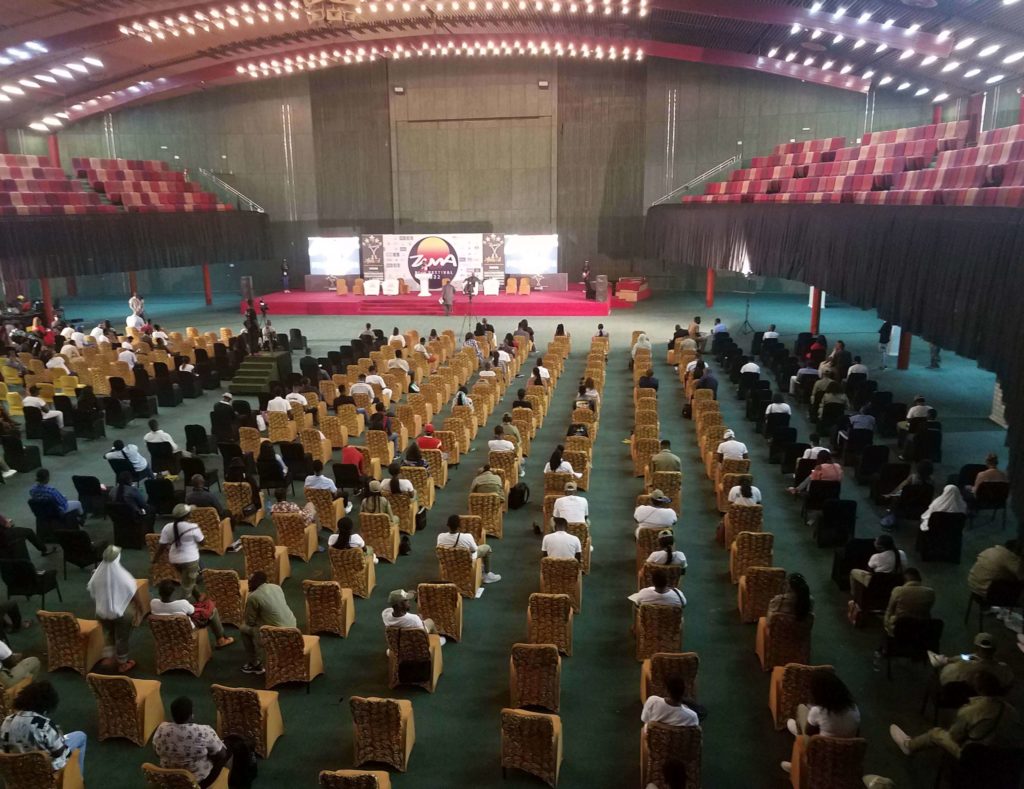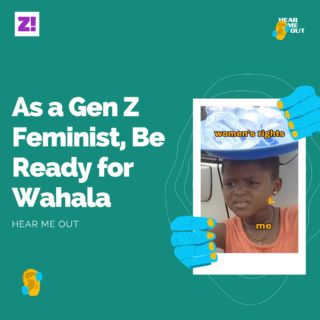The 12th edition of ZUFF, Nollywood’s major film festival, raised the question of whether the world’s second-largest film market by the number of films can tap the continent’s huge film-making potential and leverage changing economic and technological realities.
By Bob MajiriOghene Etemiku, bird story agency

Nollywood’s premier film industry event, the Zuma Film Festival, or ZUFF resumed after a two-year hiatus to a changed world… one in which online work and video meetings and the streaming of entertainment have become the norm, globally. And one in which Africa has become a single market, under the Africa Continental Free Trade Area, or AfCTFA.
Named for Zuma Rock, an inselberg outside of the capital Abuja, May’s event, themed “Show me the money” (“Show me di pepper”, or “owo”, in pidgin), was refreshingly introspective.
Up for debate was the uncertainty surrounding the Nigerian, and indeed the African, film industry over what renowned actor, entrepreneur, director and producer, Emeka Ike, 55, called “Old Nollywood to New Nollywood”.
For an industry whose massive growth can in large part be linked to a revolution in cheap digital video cameras and DVDs in the 1990’s and which thanks to the limitations of streaming in Nigeria, has remained insulated from more recent digital advances, the latest developments in streaming and in the market are both alarming and a huge opportunity.
The “Old Nollywood”, was a world of evergreen stars such as Ike, Sola Sobowale, Pete Edochie, Ireti Doyle, Kanayo O. Kanayo, Patience Ozokwo, Nkem Owoh, Joke Silva, Richard Mofe Damijo and Genevieve Nnaji, among others who were household names across Africa in the late 1990s and early 2000s.
According to Ike, who was one of the panelists at this year’s ZUFF, Nolllywood succeeded because it employed a different but innovative approach to film-making, resulting in mass appeal.
RECOMMENDED: If Nollywood Celebrities Had Side Hustles, What Would They Be Doing?
“One thing that makes movie production in Nigeria unique is that while the rest of the world produces movies for theatre before they go to television, Nigeria produces movies for television first rather than for theatre,” he said.
“Our films are first produced in DVDs, and this increases the number of people interested in buying into the market either as marketers or consumers. Most Nigerians hardly go to film houses to see movies but have only to buy a DVD, slot in their favourite movies, and enjoy our movies in the comfort of their homes. But we will soon lose the market because we are no longer using DVDs to promote our movies. Instead, we want to rely on digital methods because of ‘modernity’.”
He warned that the emerging “New Nollywood” would keep struggling unless it borrowed from the strategic approach of the “Old Nollywood” and set itself on a “reboot of sorts”, leveraging on the dynamics of technology and market trends not only at home but elsewhere in Africa and globally.
Nollywood makes over 1,000 films a year and employs more than a million people, placing it between India’s Bollywood and Hollywood, according to Canon, the global camera equipment manufacturer.
Nigerian scholar Ugo Ben Ebelebe of UK’s Griffith University, said Nollywood is already leveraging the latest in digital technology to not only remain relevant but also to raise much-needed funding.
In an article, Reinventing Nollywood: The Impact of Online Funding and Distribution on Nigeria Cinema, he argues these far-reaching transformations are being driven by “New Nollywooders” who are tech-savvy and are leading and embracing innovation, using crowdfunding and content distribution via online platforms.
This virtual space not only breaks down physical and administrative boundaries but also bureaucratic hurdles across the continent, allowing for a wider audience for Nollywood’s creative content, an example being South Africa’s DSTV and sister firm, GOtv, streaming Nollywood content for its subscribers across Africa.
According to Victor Okhai, president of the Directors Guild of Nigeria, gatherings such as ZUFF and an upcoming November 2022 film festival are important both for benchmarking and for enhancing collaboration across Africa.
Nollywood has recently seen collaboration with Gollywood (Ghana) and Riverwood (Kenya) and several other would-be African “woods”.
EDITOR’S PICK: All the Ingredients of Every Old Nollywood Action Film
Okhai added that Zuff was also a way to leverage AfCTFA, which has opened numerous opportunities for creatives and film production on the continent. Already, Nigeria and South Africa have signed a treaty to enhance collaboration on “audio-visual cooperation”.
“Our filmmakers may no longer get problems with visas to South Africa to work,” Okhai said.
Terrence Khumalo, Manager: Film Certification at South Africa’s National Film and Video Foundation, explained the treaty’s potential.
“We will be working on a legal framework that puts the treaty into some kind of action. The treaty allows actors in both countries to pull resources together to minimize unanticipated risks. It also allows them access to the markets of their respective countries,” he said.
Nigeria has also signed an agreement with Cameroon on joint film production and is negotiating another deal with Burkina Faso.
To grow its industry, Nigeria’s government is leading a drive to enable Africa’s creatives, actors, and film producers “tap the continent’s diverse and rich cultural heritage, unique geographical features, fauna and flora beside the groundswell of creative youth talent.”
Addressing the funding challenge, Nigeria’s Minister of State for Federal Capital Territory, Ramatu Tijani Aliyu, said the government recognises the potential of the Nigerian film industry, which has an estimated contribution of 2.3 per cent to national GDP.
She added that there is room for public-private partnerships with two banks — Access bank Plc and the Bank of Industry — offering the NollyAccess loan and the BOI NollyFund, respectively, to help Nollywood grow and become a benchmark for Africa.
You may like this: Dear Nollywood, Come and Explain These Ridiculous Scenes, Please
Other investments came from a collaboration with the African Development Bank (AFDB), which the minister said made a $500m facility available to Nollywood by the end of 2021.
To further support the industry and other African film producers, the Nigerian government is set to introduce specific incentives such as a Pioneer Status Incentives (PSI), a tax holiday to cover the production of digital movies, animation, videos, television programmes, commercials (including online distribution and exhibition), music production, publishing, and online digital music distribution, production of cameras, motion picture and slide projectors, overhead transparency projectors, and photography for tourism purposes.
Beyond the fanfare and talks, ZUFF 2022 showed the potential of African film production and that film has can be a rallying point for African creativity, resourcefulness and innovation.
“Nigeria has been able to use this festival and Nollywood to demonstrate the big brother role that we have played in the African Union. Nollywood is one of the biggest acts on the continent; if you travel from Zaire, Kinshasa to Accra in Ghana you’ll find Nigerian films all over,” said Fidelis Duker, the man who birthed the concept of the Abuja International Film Festival (AIFF) in 2003.
Yet despite its heavyweight stature, Nollywood must still address issues relating to the “old” and “new” Nollywood. Will the November 2022 film festival in Abuja help to further address these transition issues? Time will tell.
ALSO READ: Nollywood Keeps Doing Remakes, So We Ranked Them From Best to Worst




